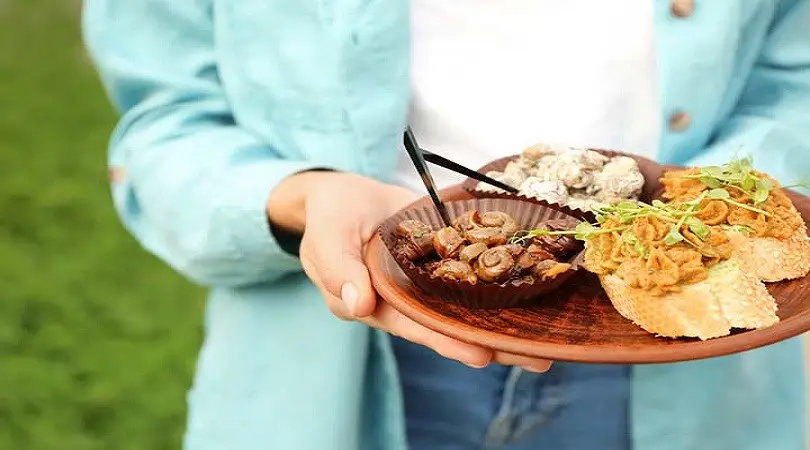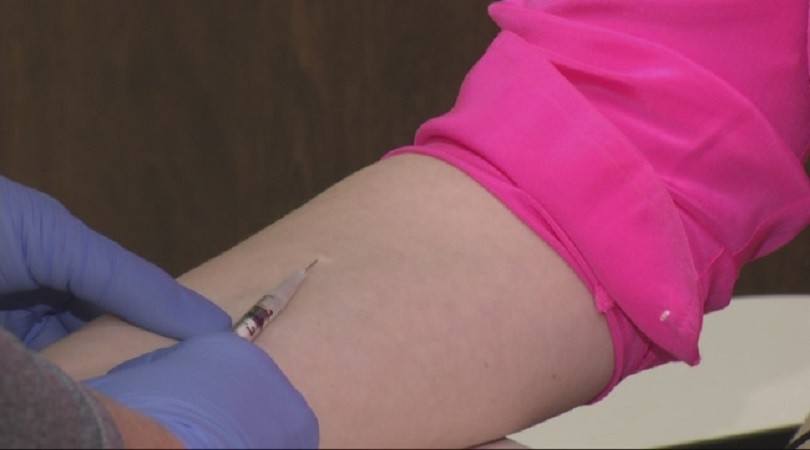Last Updated on January 6, 2025
Escargot consumption during pregnancy is not recommended due to the risk of bacterial infections. Pregnant women should take precautions when handling and preparing escargot to prevent exposure to harmful bacteria.
Escargot, also known as land snails, is a delicacy enjoyed by many people worldwide. It’s often served as an appetizer or main course at upscale restaurants. However, pregnant women may wonder if it’s safe to eat escargot during pregnancy. The answer is no.
Escargot can carry harmful bacteria, including listeria and salmonella, that can cause foodborne illness. As a result, pregnant women are advised to avoid consuming escargot to prevent infection. In this article, we’ll discuss the potential risks and precautions pregnant women should take when it comes to eating escargot.

Credit: curejoy.com
Related: Can You Eat Fish Eggs While Pregnant?
Understanding Escargot
Escargot is a delicious and popular french dish made from cooked snails. However, if you are pregnant, you might be wondering if it’s safe to consume escargot. While there is no harm in eating snails during pregnancy, there are certain risks and precautions you must be aware of.
First and foremost, make sure the snails are cooked thoroughly to avoid any risk of infection. Also, avoid consuming escargot that has been served with raw eggs or any kind of sauce that contains alcohol. Make sure to consult with your doctor before consuming escargot to ensure it is safe for you and your baby.
Keep in mind that moderation is key when it comes to consuming any kind of food during pregnancy.
Nutritional Information Of Escargot
Escargot is a rich source of protein and low in fat. It also contains essential nutrients like iron, magnesium, and vitamin b12. Eating escargot during pregnancy can help increase hemoglobin levels as it is high in iron. It may also boost the immune system due to its high content of antioxidants.
However, pregnant women need to take precautions while consuming escargot. The snails should be cooked properly to avoid any risk of bacteria or parasites that may cause infections or food poisoning. A pregnant woman should also be aware of any allergic reactions that may occur due to any previous history.
Consulting a physician before adding escargot to the diet is recommended.
Related: Can You Eat Lactation Cookies If You’Re Not Pregnant?
Risks Associated With Eating Escargot While Pregnant
Eating escargot during pregnancy is a controversial topic. There are possible health risks associated with the consumption of escargot. These risks include, but are not limited to, bacterial infections and food poisoning. Moreover, the impact on the unborn baby can be severe, leading to developmental and growth issues.
Pregnant women should exercise caution when eating escargot and avoid the dish altogether if in doubt. With all the precautionary measures taken, it’s better to be safe than sorry. If you are a lover of escargot, it is recommended that you talk to your physician for advice on what’s safe and healthy to eat during your pregnancy.
Precautions To Take While Consuming Escargot During Pregnancy
Escargot enthusiasts who are expecting need to take precautions before consuming this french delicacy. While it is generally safe to eat, pregnant women can be at risk for infections from bacteria and parasites found in undercooked escargot. To minimize risk, it is recommended to only consume fully cooked escargot from reputable sources.
Pregnant women should also limit their consumption and avoid eating escargot frequently. Safe preparation methods include thoroughly cleaning and cooking the escargot to a recommended internal temperature of at least 165°f. Lastly, it is essential to consult with a healthcare provider before consuming escargot during pregnancy.
Following these precautions can help ensure a safe and satisfying escargot experience for expecting mothers.
Alternatives To Escargot During Pregnancy
When pregnant, it is important to be cautious about what you eat. Escargot can carry bacteria and parasites that pose a potential risk to both the mother and the baby. If you are on the lookout for a safe and healthy substitute, there are various options available that provide a similar taste and nutritional value as escargot.
Consider trying dishes that contain mushrooms, clams, or mussels – all of which offer high levels of protein and a savory flavor. Nutritional value comparison can help when deciding on alternatives, but always consult your healthcare provider before adding new foods to your diet during pregnancy.
Enjoy a variety of safe and healthy foods to keep you and your baby healthy during this exciting time.
Related: Can I Eat Mcdonalds While Pregnant?
Frequently Asked Questions For Can You Eat Escargot When Pregnant? Risks & Precautions.
Can Pregnant Women Eat Escargot?
Yes, pregnant women can eat escargot, but there are risks associated with consuming it.
What Are The Risks Of Eating Escargot While Pregnant?
Eating escargot during pregnancy can lead to bacterial infections or harmful side effects.
How Can Pregnant Women Safely Consume Escargot?
Pregnant women should only eat properly cooked escargot and avoid consuming raw or undercooked escargot.
What Precautions Should Pregnant Women Take When Eating Escargot?
Pregnant women should also ensure that the escargot is sourced from a reputable restaurant or store and properly washed and cooked.
Can Consuming Escargot Have Any Benefits During Pregnancy?
While escargot can be a good source of iron, omega-3 fatty acids, and protein, it’s better to consume other foods for those benefits during pregnancy.
Conclusion
Consuming escargot during pregnancy should be approached with caution. Although it can be a delicious delicacy, it also carries risks and precautions that should not be taken lightly. The risk of contracting bacterial infections such as salmonella or listeria is high, which can result in severe consequences for the mother and unborn child.
Additionally, the high level of cholesterol and sodium present in escargot can also pose health risks, especially for pregnant women who have pre-existing conditions like high blood pressure or diabetes. Therefore, it is best to avoid escargot entirely during pregnancy, and opt for safer food options.
In case you must try escargot, ensure that it is well-cooked, and avoid consuming it in large quantities. By prioritizing your health and that of your unborn child, you can enjoy a safe and healthy pregnancy.











